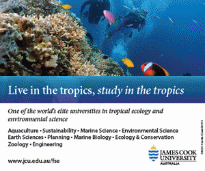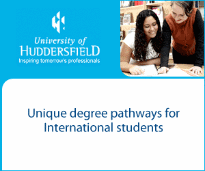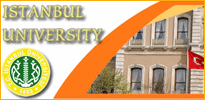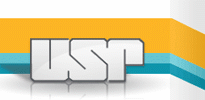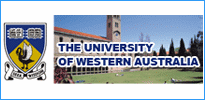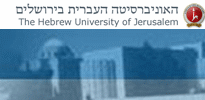Luxembourg: Luxembourg Education Sector Profile 2012
2012/03/16
Luxembourg Education Profile 2012
Newcomers to Luxembourg essentially have two options when it comes to education, either to enrol their child in a state or private school or to enrol them in an international school. The majority of children attend state schools. Only a small number of schools provide a linguistic and/or pedagogical alternative.
Education is carried out in the three official languages: Luxembourgish, French and German.
Education is compulsory for all children aged between 4 and 16. Younger children may attend nursery schools. No child can be refused education for reasons of race, sex, language, religion or legal status of the parents.
Education for Newcomers in Luxembourg
The Luxembourg Ministry of Education provides a service for newly arrived pupils in Luxembourg known as the CASNA (Cellule d'accueil scolaire pour élèves nouveaux arrivants).
CASNA help to assess the most suitable school for children who speak a foreign language, and provide information in a number of languages (including English) for parents.
-
Reception desk for newly arrived pupils
(Cellule d'accueil scolaire pour élèves nouveaux arrivants - CASNA)
At: 29 rue Aldringen, L-1118 Luxembourg
Tel: 24 78 52 77
Fax: 24 78 51 40
e-mail
Open: Tuesday and Thursday by appointment only
When attending an orientation appointment at the CASNA for post-primary education the following documents are required:
- Identity card or passport
- Social security card
- Academic records for the last two school years
- Family civil status record or residence certificate (certificat de résidence)
An information service is also available on schooling of foreign pupils:
-
Service de la scolarisation des enfants étrangers
At: 29, rue Aldringen, L - 1118 Luxembourg
Tel: 247 85207
Fax: 247 85140
Services offered to foreign pupils by the Luxembourg Ministry of Education and Vocational Training include:
- special classes and lessons in primary schools for newly arrived pupils
- welcome classes and insertion classes in secondary schools with intensive courses in either German or French
- the International Baccalaureate in English or French
- special classes in French
- cross-cultural mediators speaking various languages (Albanian, Cape-Verdian, Chinese, Italian, Persian, Portuguese, Russian)
Overview of the Luxembourg School System
Children in state schools are taught in the three country's official languages: Luxembourgish, French and German. Additional language lessons are taken at different stages of the educational cycle.
Early childhood education, pre-school and primary education are divided into four cycles known as Education Fondamentale.
| Cycle 1 | 3 to 5 years |
|---|---|
| Cycle 2 | 6 to 7 years |
| Cycle 3 | 8 to 9 years |
| Cycle 4 | 10 to 11 years |
Parents receive a school report at the end of each trimester informing them of the progress and development of their child. At the end of a cycle, children move on to the next cycle provided they have acquired the necessary level of competence. In exceptional circumstances a child may repeat a year of a cycle or skip a year. Regular appointments are set up each year by teachers to inform parents of the child's progress and any problems encountered. At the end of the third and fourth cycle a national test takes place for all children.
Younger foreign children are frequently integrated into state schools where they can begin learning the three official languages. Initiation classes are made available to pupils by the local communes and the number of hours provided depends on the language skills of each individual student.
Early Childhood Education (nursery school)
Early childhood education (éducation précoce) is available to all children up to the age of four and is optional although highly recommended by the Ministry of Education. Children must be aged three on 1 September to enrol at a nursery school and be registered on the citizens' register of the Bureau de Population. Education is usually provided in Luxembourgish.
In general, parents receive a letter from the commune of their place of residence to enrol their child, which must be sent back to the relevant commune before 1 April. Newcomers to Luxembourg should contact their local Municipal office of their place of residence for information on the enrolment procedures.
Pre-school Education (éducation préscolaire)
Pre-schools are free of charge and compulsory for all children aged four on 1 September of the upcoming school year. Lessons are in Luxembourgish language. Schools hours are usually Monday to Friday from 08:00 to 11:45 and Monday, Wednesday and Friday from 14:00 to 16:00. Some communes provide meals at lunchtime.
Enrolment takes place at the education department (Service de l'Enseignement) of the commune of residence at least three months before the start of the school year. Parents wishing to enrol their child in a school outside of their commune must request a dérogation with the commune's Mayor (bourgmestre). Children must be registered on the citizens' register of the Bureau de Population in order to enrol at a school.
Primary School Education
Primary school education starts at age 6 and covers cycles 2, 3 and 4 of the Education Fondamentale programme. Teaching, reading and writing is in German and French lessons are taught from the end of Cycle 2.
Enrolment takes place at the education department (Service de l'Enseignement) of the commune of residence in April and children must be registered on the citizens' register of the Bureau de Population. Most schools provide lunch for their pupils. Textbooks are provided free of charge.
Secondary Education
After primary education, students go either to a lycée classique (general education) or a lycée technique (with a focus on technical education leading towards specific professions). Pupils undergo an academic guidance session (cycle d'orientation) at the end of Cycle 4 in order to evaluate the best option for their secondary school education. This is based on the child's performance and abilities as well as their interests and aspirations. The guidance is based on four criteria:
- Parents wishes
- Primary school teacher's advice
- School results of the last two years
- Results of a series of exams taking place at the end of year Cycle 4
The decision (avis d'orientation) is made by a panel made up of the child's main teacher, a secondary general education teacher and a secondary technical education teacher. The committee is chaired by the chief education inspector of the region, assisted by a consultant psychologist. An appeal by the parents is possible.
Enrolment at a secondary school
Children attend the secondary school closest to their place of residence. Parents wishing to enrol their child in a school outside of their commune must request a dérogation with the commune's bourgmestre. Registration takes place at the school between mid June and the beginning of July.
The following documents will be required:
- the original of the academic guidance decision (avis d'orientation)
- completed registration form available from the school or from the primary school teacher
- a document issued by the commune of residence stating that the child is on the citizen's register (extrait de registre de la population)
- a copy of the child's results from the first half of year 6
Secondary school programme
In the first year of secondary education all pupils follow a similar programme. From the second year onwards a range of options can be chosen according to preference and ability. These will lead to education of a general nature or with a more technical, artistic or professional focus. Often schools will specialise in one of these streams or will have different sections for different streams. Within the streams pupils continue to choose from further options throughout secondary school resulting in a broad education weighted towards their preferred subjects or career.
Assessment is ongoing throughout secondary education. If the child has not achieved satisfactory grades during the school year they may repeat the year. Students receive a diploma at the end of their studies and for those who have followed a general range of subjects, the next step is normally higher education.
Technical students often go to university or college to study related subjects or may start working straight after school. Vocational students typically begin working part-time to complement their studies from age 16 and then move into full-time employment.
International Baccalaureate
The International Baccalaureate is a secondary school certificate recognised by the law as an equivalent to the Luxembourgish school certificate (Diplôme de fin d'études secondaires). It is offered by a limited number of private and public schools.
Teaching is either in English from age 14 onwards, or French from age 15 onwards. A particular focus is put on languages and sciences. At the end of their studies, students receive a diploma, enabling them to continue their studies at university.
Maisons Relais
Maisons Relais provide before and after-school care for children under 18, as well as lunch programmes and help with homework. This service is organised by the Commune. Not all communes offer this facility.
University and Higher Education
There is only one university in Luxembourg, providing up to three years of university studies. The range and variety of subjects is limited although the options available are increasing every year. Most students usually complement their studies in a neighbouring country.
-
Université de Luxembourg
At: 6 rue Richard Coudenhove-Kalergi, L-1359 Luxembourg
Tel: 46 66 44 5000
Special Needs Education
Specialist schools are also available for children with specific needs. Wherever possible children with disabilities and/or learning difficulties are catered for within mainstream schools. However, there are separate specialist schools available and in the case of severe disability, children may be taught at home or be exempt from compulsory schooling. Almost all mainstream schools are equipped to cater for children with mobility disabilities.
Home Schooling
Home schooling is allowed in Luxembourg. Contact the local commune for further information and details of the local educational inspector.
School year and holidays
The Luxembourg school year starts on 15 September and ends 15 July. The year is divided into three terms.
Schools are also closed on public holidays.
Transport
It is the parent's responsibility to drop their children at school. There is also a school bus system operating at convenient times. The bus ride is free of charge for all students. A bus pass is required and can be obtained from the school.
School Health Tests
Mandatory annual medical tests are carried out at schools for all children. These tests are performed by the Ligue Medico-Sociale across the country except in Luxembourg-City where tests are performed by a specific unit. Tests are carried out at school, in hospitals or in specifically adapted buses. Tests include a general check up, eye test and dental examination.
International Schools
There are only a few international schools in English in Luxembourg, some operating a waiting list. Interested families should inquire and apply as early as possible as spaces are usually limited.
- Luxembourg News
-
- ALBANIA: Europe in 2016: Terror fears, migration, politics. But economy may turn a corner
- AFGHANISTAN: Global growth will be disappointing in 2016: IMF's Lagarde
- FRANCE: Luxembourg court charges French reporter over ‘LuxLeaks’ role
- AFGHANISTAN: Revised IMF forecasts signal gloom on global economic outlook
- AFGHANISTAN: Oxfam Study Finds Richest 1% Is Likely to Control Half of Global Wealth by 2016
- LUXEMBOURG: Finance Minister Luc Frieden
- Trending Articles
-
- AUSTRALIA: Australia taxes foreign home buyers as affordability bites
- CHINA: United States sees China investment talks ‘productive’ after new offers
- SERBIA: China’s Xi sees Serbia as milestone on new ‘Silk Road’
- INDIA: Indian central bank chief to step down in surprise move
- THAILAND: Foreign investment plummets in junta ruled Thailand
- SOUTH AFRICA: South Africa to extend ICT reach


